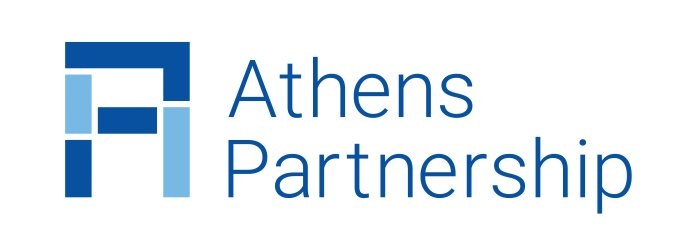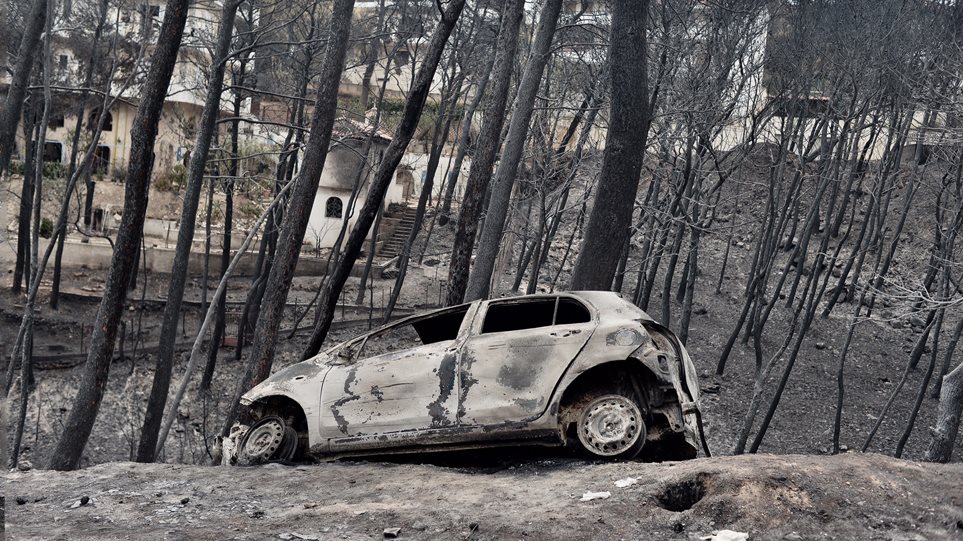How Athens took ‘experiential learning’ and ‘participatory design’ from theory to practice
Two and a half years after the start of the Designed for Better Learning program at the City of Athens, how enduring is the change in culture and attitudes for the 4,000 children in the 24 pubic schools that were transformed through this Athens Partnership program? Are new students faced with a changed experience or is the impact of the DBL program gradually fading away?
5 City of Athens nursery homes that share a common courtyard were renovated through the Designed for Better Learning program.
Starting in the Spring of 2016, the Designed for Better Learning (DBL) program, supported through an exclusive grant by the Stavros Niarchos Foundation (SNF), transformed 24 schools, equal to 5% of all public schools overseen by the City of Athens, using a groundbreaking approach that combines education with architecture and actively involves teachers, students and parents in the process and maintenance. The result was not just much better looking schools, but also a cultural shift which came from a significant increase in the sense of a personal connection and engagement with the school. The Athens Partnership coordinated the program for the City of Athens, while the Transformable Intelligent Environments Lab (TUC TIE Lab) of the Technical University of Crete was responsible for the scientific planning and implementation.
Stelios Vassilakis, Director of Programs & Strategic Initiatives, Lenia Vlavianou, Group Director of Communications, Alexia Vasilikou, Communications Officer and Aristi Stathakopoulou, Program Officer at the Stavros Niarchos Foundation, met with the principals of all the kindergartens, who shared their first-hand experience of the changes brought about by Designed for Better Learning.
Popi Baskeki, the Principal of one of the preschools, speaks enthusiastically about the change that happened through the Designed for Better Learning program.
Last July, we welcomed the Stavros Niarchos Foundation for a visit to the pre-schools that were revamped using this innovative method. The changes included a redesigned common courtyard for all, upgraded internal spaces, as well as new educational games and constructions for the 500 children and 60 educators at the 5 Nursery Schools of the Municipality of Athens, at Christodoulakio, on Kifissias Avenue. After a tour, we sat down with the same team of educators who took part in planning the changes at the very start of the program.
The nursery school principals recalled the planning stage of the program, when DBL architects and researchers sat together with educators to discuss how they envisioned a more functional, education friendly school environment. The greatest challenge to overcome for the 5 nursery schools was that they were housed in adjacent buildings that shared a common school yard that was separated by gates, fences and walls. These boundaries divided up the space and also created visual barriers between the educators and the children.
Vaso Leneti, principal of one of the nursery schools (left) with Marianthi Liapi, DBL project manager from the TUC TIE Lab of the Technical University of Crete.
“When we first heard about the program, we were very enthusiastic and hardly believed all these changes were possible! The project team, architects and researchers, were asking us ‘what are your wishes and dreams for this school?’” says Popi Basdeki, the Principal at one of the five nursery schools.
The first stage of Designed for Better Learning focused on large-scale architectural interventions: unifying the separated playground, creating more efficient interior layouts, upgrading facilities such as the bathrooms. And change did not stop here: through the “Educational Pla(y)ces” structures, the DBL team worked with students and teachers in each of the schools to enrich learning spaces and incorporate educational equipment.
One of the new educational tools designed by the DBL team together with educators, created at the City of Athens Maker Space, also a part of the DBL program.
“Through this program, we came to put to use concepts that we previously talked about theoretically, like ‘experiential learning’ and ‘participatory design’, but could never really enforce in our environment”, says Maria Vlachou, Principal of the Christodoulakio complex. The testimonials make it clear that the transformation had a deep impact on school culture.
“The combination of top-down and bottom-up changes is the unique element of this approach”, said Marianthi Liapi, Project manager of the DBL program. “We found the common ground between the needs and visions of educators and the school community, bringing innovation together with tailor-made solutions that served that specific community at a world-class standard.”
Children now play in a stimulating environment that supports development and allows them to take more risks while exploring their environment.
The tour showed first-hand what data already indicated to us – which is that 2.5 years later the transformation has been maintained and supported by these schools. Although construction crews transformed the architectural environment, it was the DBL methodology which went below the surface and engaged teachers, parents and the children in a way that made them stakeholders and guardians.

















